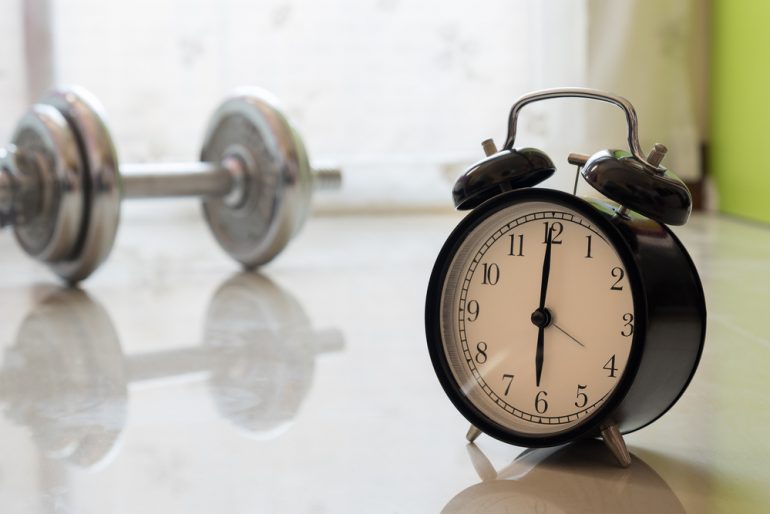What Is the Best Time of Day to Exercise?
Exercising in the morning
Finding time to exercise can be challenging. Exercising at particular times of the day may help you reach your health and fitness goals. What’s the best time to exercise?
Working out first thing in the morning has benefits for your health and your workout.
Less distractions. In the morning, there’s usually less competition for your time. Getting your workout in early means that work or school hasn’t started, and there usually aren’t social activities to attend. Leaving exercise to later in the day may lead you to make excuses for not exercising.
Boost mood and energy. Working out in the morning is a good way to kickstart your day. It can boost your mood and energy levels.
A study found that working out at 7 am rather than 1 pm or 7 pm can improve your sleep quality.
Increased activity. Morning exercise can help you increase your overall physical activity throughout the day. A study found that women who worked out in the morning were more active during the rest of the day. Their activity level throughout the day was lower when they didn’t exercise in the morning.
Burn more. You may burn more fat when exercising on an empty stomach. When you work out on an empty stomach, you may be able to burn up to 20% more body fat. This is probably easier to do before your morning breakfast.
Exercising in the afternoon or evening
If you prefer to exercise in the afternoon or evening, there are many advantages for these times as well.
Help with digestion. A light walk after lunch may help get your digestive system going. If you have Type 2 diabetes, a walk after lunch can help improve your absorption of glucose.
Relieve stress. Sometimes you just need to get out and break a sweat at lunchtime or at the end of your work day. Exercise lowers your body’s stress hormone levels, including your levels of the hormones adrenaline and cortisol.
Exercise is a form of recreation. It also makes you get out and spend time by yourself or with friends. This can help distract you from the worries and stresses of your work or daily life.
Better performance. Scientists say that your reaction time is best in the afternoon and evening. This is useful when playing soccer, basketball, and racket sports like tennis.
Studies have also found that your peak power and grip strength are higher in the evening than in the morning. This may help improve your sports performance in the evening.
Exercise and sleep
Exercise can help you sleep better, as long as you don’t exercise too close to bedtime.
Evening exercise may help you sleep better. Researchers found that exercise increased total sleep time as well as time spent in deep sleep.
Vigorous exercise close to bedtime may result in poorer sleep quality. When you exercise, your body releases endorphins. These chemicals may cause some people to stay awake.
Exercise also raises your body temperature. This rise in core body temperature is a signal to your body clock that it’s time to be awake. It takes about 60 to 90 minutes after exercising for your body temperature to drop.
If exercise keeps you awake, try not to exercise 1 to 2 hours before bed. This gives your brain some time to wind down, and your endorphin levels time to fall. Then you’ll be able to sleep better.
If you regularly sleep less than 6 to 7 hours a night, you may be at a higher risk for health problems like:
- Stroke
- Obesity
- High blood pressure
- Cardiovascular disease
The best time to workout
What’s the best time to exercise? The best time is whenever is best for you. If you’re not a morning person, exercising in the morning may be something you dread. You may find it easier to hit the gym after work. It’s more important to pick a time that suits your schedule and your lifestyle.
What’s also important is that you find an exercise that you enjoy. This will motivate you to keep exercising. Try different types of exercise at different times of the day to see what suits you.
Whatever time of the day you choose to exercise, keep in mind that each week you need at least 150 minutes of moderate-intensity exercise or 75 minutes of vigorous exercise. This should be spread out through the week. Children aged 6 to 17 years should be active at least 60 minutes a day.

